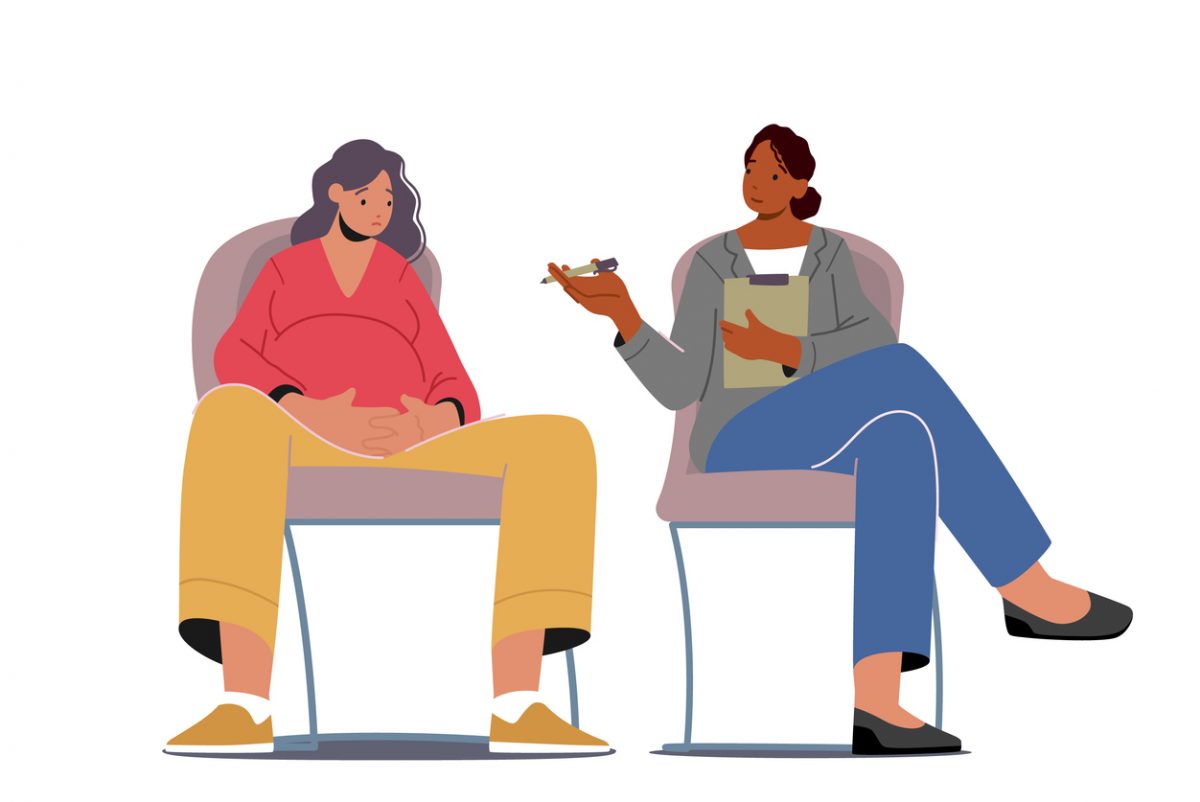In 2024, JCP’s Focus on Women’s Mental Health section celebrates its 20th birthday.
The first among our specialty sections, it was launched in 2004.1 Approximately 25 years ago, I shifted my clinical and academic focus to perinatal psychiatry from a broader focus on mood disorders. Programs in Perinatal and Reproductive Psychiatry were scarce. I have worked in academic medical centers in several regions of the United States, and I experienced what it is like to practice perinatal psychiatry virtually solo and also with the luxury of the past 15 years at Massachusetts General Hospital (MGH) in a program with perhaps the largest group of practicing perinatal psychiatrists.2 We’ve seen greater recognition of the need for specialized treatment of pregnant and postpartum individuals. We now have more mental health care providers in this area, more advocacy, and, importantly, more of a community.
What Has Changed and What Has Not
Access to specialized mental health care during pregnancy and the postpartum remains elusive for many individuals. The health care system is notoriously difficult to navigate, and there are shortages of mental health professionals. Telehealth and digital therapeutics may make it more accessible for some. Yet, we must consider how to best reach those often marginalized by our standard health care systems.
Unplanned pregnancies still account for about half of pregnancies in the United States.3 However, we now have a patchwork of reproductive rights, and the legacy of state-by-state legislation of reproductive rights cannot yet be fully understood.4 Now more than ever, we must consider safety in pregnancy as paramount when prescribing medications to individuals of reproductive potential, not only those considering pregnancy, especially since many of the disorders we treat require ongoing maintenance therapy. Many of the most commonly utilized medications lack adequate safety data for use in pregnancy and lactation.5
Breastfeeding remains one of the most stressful topics of new parenthood. New mothers often experience difficulty breastfeeding, and there is probably a complex bidirectional relationship between breastfeeding difficulty and stress, anxiety, and depression.6 From a public health perspective, exclusive breastfeeding is recommended. However, if a new mother is experiencing worsening mental health, it needs to be put into perspective, and we seek to avoid shaming vulnerable new parents.
We have seen greater appreciation for attention-deficit/hyperactivity disorder (ADHD) in women and girls.7 Many women who may not have been diagnosed in the past are now approaching the reproductive years with diagnoses of ADHD and are on medications to treat it. Some women receive diagnoses as young adults and even later in life. We find ourselves often helping women navigate treatment choices for ADHD across pregnancy and the postpartum, a rare task 20 years ago.
Another major change is the availability of cannabis products and the legalization for medical and recreational use across many states. The perception of marijuana has greatly changed as it has evolved from being an illicit substance to being a legalized recreational substance in much of the United States. Often, pregnant individuals do not consider the impact of cannabis on the developing fetus and pregnancy outcomes.8 Younger women are often especially surprised that something “natural” can be of harm, and clinically we observe that they may misguidedly use marijuana products in lieu of prescription psychopharmacologic treatments. Trends in use underscore the need to educate the public more comprehensively about risks of exposure to cannabis during pregnancy.9
We are increasingly seeing individuals pursuing fertility treatment or nontraditional routes to pregnancy.10 Most often this stems from women having children later in life, but we also see same-sex partners and other nontraditional family configurations in which fertility treatments are pursued for pregnancy.
On the topic of nontraditional families, we have an enhanced recognition that sex and gender are broader concepts than were appreciated in the past. This underscores the need for perinatal psychiatry to be patient-centered and respectful of individuals’ situations. However, clinicians still refer to women’s mental health. To do so acknowledges that biological determinants shape our subspecialty, although we do not wish to disrespect individual preferences. While we might use the terms “women” and “mothers” broadly, others may use the term “pregnant people” or “pregnant individuals” rather than “pregnant women.”11 Regardless, I believe we are more aware now about the language we use with patients and their families.
We also have the first US Food and Drug Administration–approved treatments for postpartum depression. These include the neurosteroids brexanolone and zuranolone.12 While standard antidepressants and psychotherapies were already available, the targeted indication may encourage more research and drug development in this area.
Social media and virtual platforms have given us the opportunity to educate larger numbers of health care providers and the public about perinatal psychiatric disorders. Many of us who were not using telehealth and online platforms for connecting with one another before the COVID-19 pandemic are now doing so. For some, this is the primary means in which we see patients and colleagues. We are now learning more about how telehealth may shape our field.13
When I started my career in perinatal psychiatry as a lone psychiatrist in this area and my academic department, I would have welcomed the opportunity to “round” with colleagues virtually. If you are interested in perinatal psychiatry and lack a group for peer supervision and interactive learning, please consider joining us at the MGH Center for Women’s Mental Health for Virtual Rounds (https://womensmentalhealth.org/educational-programs-2/). These Virtual Rounds are open to health care providers interested in perinatal psychiatry, at no cost, and have been in place since the COVID-19 pandemic shifted our work to virtual in March 2020.
With those thoughts, I am pleased to note JCP’s Focus on Women’s Mental Health’s 20th year. I hope that this section plays a part in the quality of lives of individuals and their families.
Published Online: June 17, 2024.
https://doi.org/10.4088/JCP.23ed15239
© 2024 Physicians Postgraduate Press, Inc.
J Clin Psychiatry 2024;85(3):23ed15239
References (13)

- Freeman MP, Anthony M. Focus on women’s mental health. J Clin Psychiatry. 2004;65(9):1164–1165. PubMed CrossRef
- MGH Center for Women’s Mental Health. Reproductive psychiatry resource and information center. www.womensmentalhealth.org
- Centers for Disease Control and Prevention. Unintended pregnancy. https://www.cdc.gov/reproductivehealth/contraception/unintendedpregnancy/index.htm
- Gostin LO. The US turns its back on women’s reproductive rights. BMJ. 2022;377:o1206. PubMed CrossRef
- Mansour O, Russo RG, Straub L, et al. Prescription medication use during pregnancy in the United States from 2011 to 2020: trends and safety evidence. Am J Obstet Gynecol. 2023:S0002-9378(23)02172-5. Published online December 23, 2023. doi:10.1016/j.ajog.2023.12.020 PubMed CrossRef
- Diez-Sampedro A, Flowers M, Olenick M, et al. Women’s choice regarding breastfeeding and its effect on well-being. Nurs Womens Health. 2019;23(5):383–389. PubMed CrossRef
- Baker AS, Freeman MP. Management of attention deficit hyperactivity disorder during pregnancy. Obstet Gynecol Clin North Am. 2018;45(3):495–509. PubMed CrossRef
- Foti TR, Green A, Altschuler A, et al. Patient perceptions of prenatal cannabis use and implications for clinicians. Obstet Gynecol. 2023;142(5):1153–1161. PubMed CrossRef
- Ainiti DF, Lykeridou A, Nanou C, et al. Cannabis use during pregnancy and its effect on the fetus, newborn and later childhood: a systematic review. Eur J Midwifery. 2023;7:19. PubMed
- Inhorn MC, Patrizio P. Infertility around the globe: new thinking on gender, reproductive technologies and global movements in the 21st century. Hum Reprod Update. 2015;21(4):411–426. PubMed CrossRef
- National Institutes of Health. Inclusive and gender-neutral language. https://www.nih.gov/nih-style-guide/inclusive-gender-neutral-language
- Patterson R, Balan I, Morrow AL, et al. Novel neurosteroid therapeutics for post-partum depression: perspectives on clinical trials, program development, active research, and future directions. Neuropsychopharmacology. 2024;49(1):67–72. PubMed
- Shaker AA, Austin SF, Storebø OJ, et al. Psychiatric treatment conducted via telemedicine versus in-person modality in posttraumatic stress disorder, mood disorders, and anxiety disorders: systematic review and meta-analysis. JMIR Ment Health. 2023;10:e44790. PubMed CrossRef
This PDF is free for all visitors!
Save
Cite



